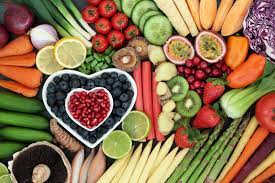Gaza post
Some studies suggest that 50 to 60 percent of the adult population suffers from chronic insomnia according to the Sleep Foundation.
Foods high in fat and sugar take longer to digest, which can keep the body awake.
It’s also a good idea to avoid alcohol before going to bed, as it can disrupt the sleep cycle and lead to poor sleep quality.
Everyone experiences hunger pangs in the middle of the night, and the desire to reach for the nearest bag of chips or jar of cookies may actually harm your body’s ability to fall back asleep or cure your hunger.
iStock
Foods high in fat and sugar take longer to digest, which means they won’t satisfy hunger quickly, according to Dawn Jackson Blatner. She’s the author of “The Superfood Swap” and she spoke with Well+Good about how to eat the right foods to curb hunger pangs at night.
Blatner also added that “giving your gut foods that are difficult to digest distracts your body from sleep, and then sugar causes spikes and crashes of blood sugar and those will interrupt sleep, too.”
It’s best to avoid alcohol too, as Blatner suggested that though it can help in making people feel sleepy, alcohol tends to disrupt the sleep cycle later in the night and leads to lower quality sleep. The same goes for herbal teas, which can be caffeinated as well. That can lead to not only keeping people awake but also having to use the bathroom frequently.
Blatner recommended the following seven foods to help promote a healthy REM cycle.
Tart cherries are a natural source of melatonin, a hormone that regulates a body’s internal sleep-wake cycle. If tart cherries aren’t available, Blatner suggested trying tart cherry concentrate according to Blatner.
Pumpkin seeds: Researches have found pumpkin seeds to be a good source of magnesium which improves insomnia and sleep efficiency. Blatner suggested almonds, cashews, and peanuts are other good sources of magnesium for a healthier midnight snack option.
Cottage cheese: Blanter clarified that “Research has found people who ate cottage cheese about 30 minutes to an hour before going to bed experienced better metabolic health, muscle quality, and overall health than people who didn’t.”
Warm milk: A study has found that a protein called casein that’s found in cow’s milk interacts with a key digestive enzyme in the stomach, which produces a sleep-enhancing peptide. Blatner also said that “the added vitamin D in milk may also play a role in maintaining healthful sleep.”
Kiwi: The naturally sweet fruit has been found to contain antioxidants and serotonin that could be beneficial in the treatment of sleep disorders. Studies have found that consuming kiwis may improve sleep onset, duration, and efficiency in adults that report sleep disturbances.
Banana with peanut butter: “Foods that contain unsaturated fats, like peanut butter, can help improve serotonin levels and boost satiety to keep you feeling satisfied and full during sleep,” said Carissa Galloway, registered dietitian nutritionist, to Well+Good. Galloway recommended pairing a banana with peanut butter before bed, as bananas also contain magnesium which can support good sleep.
Chamomile tea: An ancient medicinal herb, research shows that chamomile has been widely regarded as a mild tranquilizer and sleep-inducer as it has compounds that connect with receptors in the brain to help reduce insomnia and promote a state of steady sleep.
Some studies have suggested that up to 50 to 60 percent of adults live with chronic insomnia. Though for some people formal treatment may be needed, if you suffer from the occasional bout of sleeplessness then trying some of these sleep superfoods could help according to the Sleep Foundation.

















